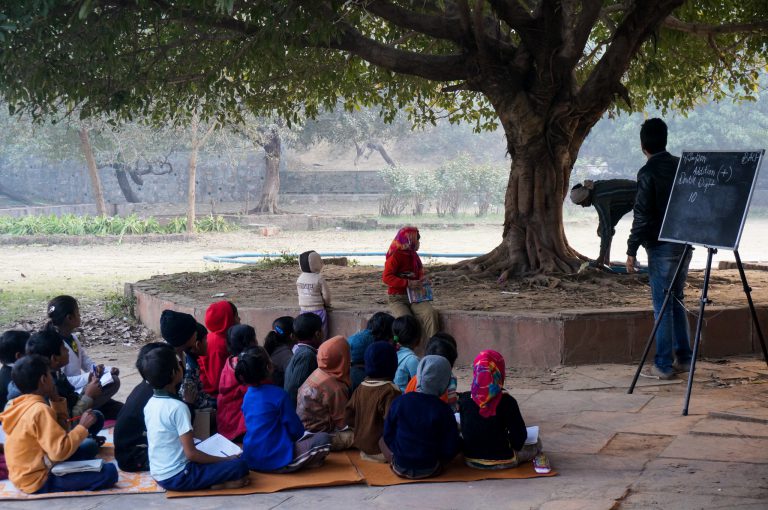
Millions of young students in low and middle-income countries face the prospect of lost opportunity and lower wages in later life due to failing schooling systems, in what the World Bank warns is a global “learning crisis”.
The World Development Report 2018 entitled ‘Learning to Realize Education’s Promise’ explains how schooling without learning is not just a wasted development opportunity, but also a great injustice to children and young people worldwide.
Released Wednesday, the report details how, even after several years in school, millions of children cannot read, write or do basic mathematics. It warns that this deficiency in learning will result in the exacerbation, rather than the reduction, of extreme poverty throughout developing countries and lead to a widening of the social gap as children are robbed of opportunity and young students who are already disadvantaged by poverty, conflict, gender or disability reach young adulthood without even the most basic life skills.
“This learning crisis is a moral and economic crisis,” World Bank Group President Jim Yong Kim said.
Recognising the immense benefits of good education in tackling social issues and inequalities, including its ability to “spur innovation, strengthen institutions, and foster social cohesion,” Kim also points out the dangers of poor education.
Our NEW WDR report says that #education leads to longer lives and enables better life choices #WDR2018 https://t.co/GWxcAzjN1s pic.twitter.com/2PiJMaRgdy
— World Bank (@WorldBank) September 26, 2017
“These benefits depend on learning, and schooling without learning is a wasted opportunity,” he said. “More than that, it’s a great injustice: the children whom societies fail the most are the ones who are most in need of a good education to succeed in life.”
Taking a closer look at India, the report shows that over 80 percent of grade 2 students could not read a single word of a short text. The same was true for maths in which over 80 percent could not perform a simple two-digit subtraction.
There were improvements in some countries, such as Brazil that saw both reading and maths skills of 15-year-olds improve, but the report warned that at the current rate of improvement they won’t reach the “rich country average score” in maths for 75 years. In reading, it will take more than 260 years.
An emphasis on learning rather than just schooling is needed, as the report shows that students in school often learn little from year to year, and early learning deficits are magnified over time.
These statistics do not account for 260 million children who, for reasons of conflict, discrimination, disability, and other obstacles, are not enrolled in primary or secondary school.
#Didyouknow? Hundreds of millions of children reach young adulthood w/o the most basic skills for life. #WDR2018 https://t.co/GWxcAzjN1s pic.twitter.com/Kt0ZffAZl0
— World Bank (@WorldBank) September 27, 2017
While not all developing countries experience extreme learning gaps, the difference between poor and high-income countries is evident.
Leading international assessments on literacy and numeracy show that the average student in poor countries performs worse than 95 percent of the students in high-income countries. Also, many high-performing students in middle-income countries – those who achieve in the top quarter of their groups – would rank in the bottom quarter in a wealthier country.
In order to close the gap and level the playing field, the report makes three recommendations to get countries advancing in the right direction.
First, is to assess learning so it can become a measurable goal.
Finding that only half of all developing countries have metrics to measure learning at the end of primary and lower secondary school, the report suggests widespread and reliable student assessments so teacher quality and progress can be objectively measured. This information can then go on to inform national and international policy and prevent some students from being left behind.

The report shows that over 80 percent of grade 2 students in India could not read a single word of a short text. Source: Shutterstock
The report also encourages crafting schools that work for all children by promoting “nutrition and stimulation so children start school ready to learn.” The use of technologies in the classroom and the management of schools is also suggested.
And finally, to mobilise everyone who has a stake in learning, increase accountability and create political will for education reform. It suggests involving all stakeholders, including the business community, in all stages of education reform, from design to implementation.
“Developing countries are far from where they should be on learning,” said Jaime Saavedra, a former Peruvian Education Minister, and now the World Bank’s Senior Director for Education.
“Many do not invest enough financial resources and most need to invest more efficiently. But it is not only a matter of money; countries need to also invest in the capacity of the people and institutions tasked with educating our children.”
Liked this? Then you’ll love these…
Education is the key to ending child marriage, says World Bank
World Education Forum takes on global education challenges and goals







